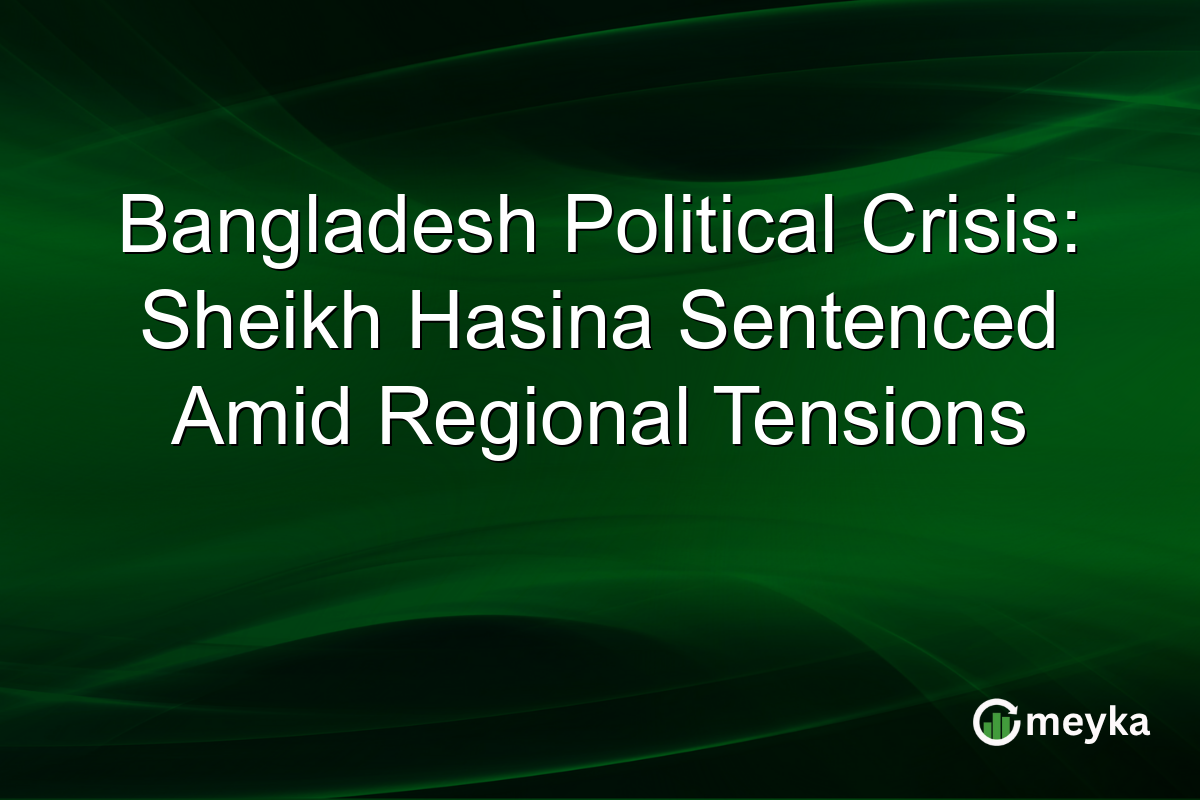Bangladesh Political Crisis: Sheikh Hasina Sentenced Amid Regional Tensions
Sheikh Hasina’s recent sentencing has intensified the Bangladesh political turmoil, sparking concerns over regional stability. This decision, marked by accusations of crimes against humanity, threatens to reshape Bangladesh’s political landscape. As the country’s longest-serving prime minister, her leadership has been pivotal, and her fall from grace raises questions about the future political direction.
Continue Reading on Meyka
This article is available in full on our main platform. Get access to complete analysis, stock insights, and more.
Read Full Article →





